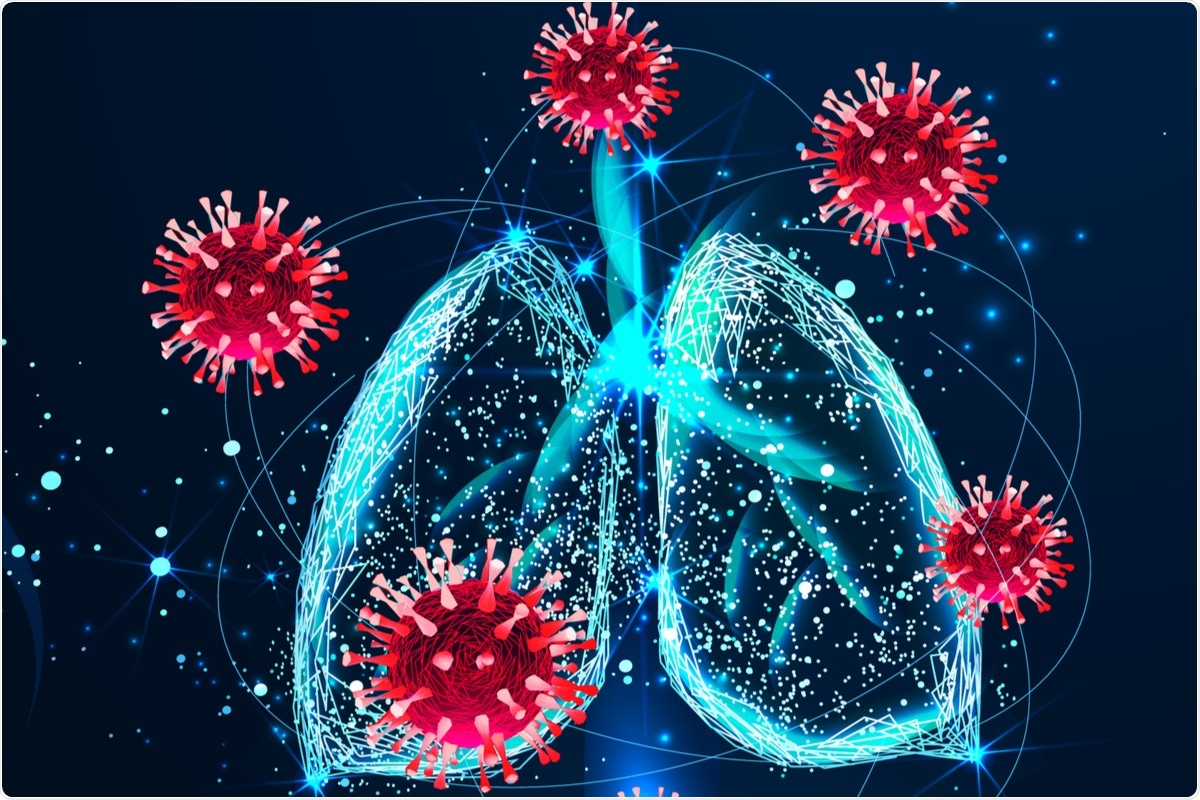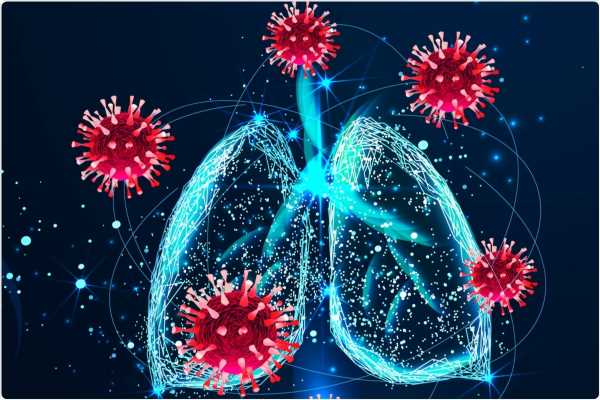How does COVID-19 affect patients with idiopathic pulmonary fibrosis?
To date, the coronavirus disease 2019 (COVID-19) pandemic, caused by the rapid spread of severe acute respiratory syndrome coronavirus 2 (SARS-CoV-2), has claimed more than six million lives globally. Elderly people or individuals with comorbidities are at a higher risk of contracting severe infection as compared to younger age groups.

Study: Characteristics and outcomes of COVID-19 patients with IPF: a multi-center retrospective study. Image Credit: IRINA SHI / Shutterstock.com
Background
Several studies have revealed that COVID-19 patients with pre-existing interstitial lung disease (ILD) are more susceptible to severe infection as compared to non-ILD patients. Additionally, patients with ILD have significantly higher in-hospital mortality rates as compared with those without ILD.
A previous multinational study analyzed the in-hospital mortality of 161 patients with ILD hospitalized with COVID-19 and revealed that 42.2% of patients had idiopathic pulmonary fibrosis (IPF). A similar study has been conducted in the United States, which also reports that patients with ILD are more susceptible to severe COVID-19 as compared to those without ILD. Another study has shared a similar observation that COVID-19 patients with fibrotic ILD exhibited a higher mortality rate compared to non-fibrotic ILD.
There remains a limited amount of evidence on the outcome of COVID-19 patients with IPF. To this end, a recent Respiratory Medicine and Research study addresses this research gap and discusses the outcomes of IPF patients with confirmed SARS-CoV-2 infection.
About the study
In the current retrospective, multi-center, cohort study, scientists obtained records of patients from four hospitals with IPF and COVID-19. They gathered the demographics and clinical outcome data by reviewing the electronic medical records of these patients.
To this end, hospitalization rates, the requirement of intensive care unit (ICU) admission, and mortality were exceptionally high among IPF patients with COVID-19. More specifically, 52.2% and 66.7% of patients required hospitalization and ICU admission, respectively, whereas the mortality rate was 28.2%. These estimates differed significantly among the general population, where the hospitalization rate was estimated to be between 21-28%, the mortality rate 2.0%, and the ICU requirement rate was between 10-20%.
According to a large population-based study, SARS-CoV-2 infection is 2.4 times more frequent in patients with ILD than in individuals without an ILD diagnosis. Scientists were unable to estimate the frequency of COVID-19 occurrence in the general population due to a lack of a control group in this study; however, they reported that 59.7% of the study cohort reported positive a positive reverse transcriptase-polymerase chain reaction (RT-PCR) result for SARS-CoV-2
Previous studies determined that IPF patients with COVID-19 are more susceptible to developing severe infection and are more likely to require oxygen therapy, intensive care, and mechanical ventilation.
Although it is not clear why SARS-CoV-2 infection is related to a poor prognosis in patients with IPF, researchers believe it is mostly because of decreased pulmonary reserve. Additionally, lung damage and inflammation are more severe, especially during the cytokine storms in IPF patients with COVID-19, thereby increasing the mortality rate in this subset of COVID-19 patients.
Previous studies have also indicated that advanced age, pre-existing issues associated with lung function, male gender, and comorbidities are common risk factors for both IPF and severely infected COVID-19 patients.
A prior study has indicated that the expression of the angiotensin-converting enzyme 2 (ACE2) receptor and the transmembrane serine protease 2 (TMPRSS2) is increased in IPF patients. As ACE2 and TMPRSS2 are the major receptor proteins by which SARS-CoV-2 invades host cells, an increased expression of these receptor proteins in IPF patients invariably increases their susceptibility to contracting COVID-19 with higher severity.
A single-center small cohort study conducted in China reported that COVID-19 patients with ILD are more likely to develop symptoms like sputum, fatigue, dyspnea, cough, and diarrhea. In this study, IPF patients with COVID-19 exhibited similar symptoms such as dyspnea, cough, and fever and were more likely to require hospitalization.
Conclusions
The major strength of this study has been the inclusion of the largest number of IPF patients with COVID-19. However, the current study has several limitations that include the possibility of additional confounding variables that were not accounted for, as well as the lack of a control group.
The current study cohort only consisted of patients with mild to moderate IPF who received antifibrotic therapy; however, severe IPF were patients were not present. Taken together, these limitations did not influence the overall conclusion of the study that progression of, COVID-19 could be severe in patients with IPF.
Therefore, it is imperative that IPF patients are closely monitored throughout the current pandemic, as they appear to be highly vulnerable to severe COVID-19.
- Cilli, A., Hanta, I., Uzer, F., et al. (2020) Characteristics and outcomes of COVID-19 patients with IPF: a multi-center retrospective study. Respiratory Medicine and Research. doi:10.1016/j.resmer.2022.100900.
Posted in: Medical Research News | Medical Condition News | Disease/Infection News | Healthcare News
Tags: ACE2, Angiotensin, Angiotensin-Converting Enzyme 2, Coronavirus, Coronavirus Disease COVID-19, Cough, Cytokine, Diarrhea, Dyspnea, Electronic Medical Records, Enzyme, Fatigue, Fever, Fibrosis, Frequency, Hospital, Idiopathic Pulmonary Fibrosis, Inflammation, Intensive Care, Interstitial Lung Disease, Lung Disease, Medicine, Mortality, Oxygen, Oxygen Therapy, Pandemic, Polymerase, Polymerase Chain Reaction, Pulmonary Fibrosis, Receptor, Research, Respiratory, Reverse Transcriptase, SARS, SARS-CoV-2, Serine, Severe Acute Respiratory, Severe Acute Respiratory Syndrome, Syndrome

Written by
Dr. Priyom Bose
Priyom holds a Ph.D. in Plant Biology and Biotechnology from the University of Madras, India. She is an active researcher and an experienced science writer. Priyom has also co-authored several original research articles that have been published in reputed peer-reviewed journals. She is also an avid reader and an amateur photographer.
Source: Read Full Article
